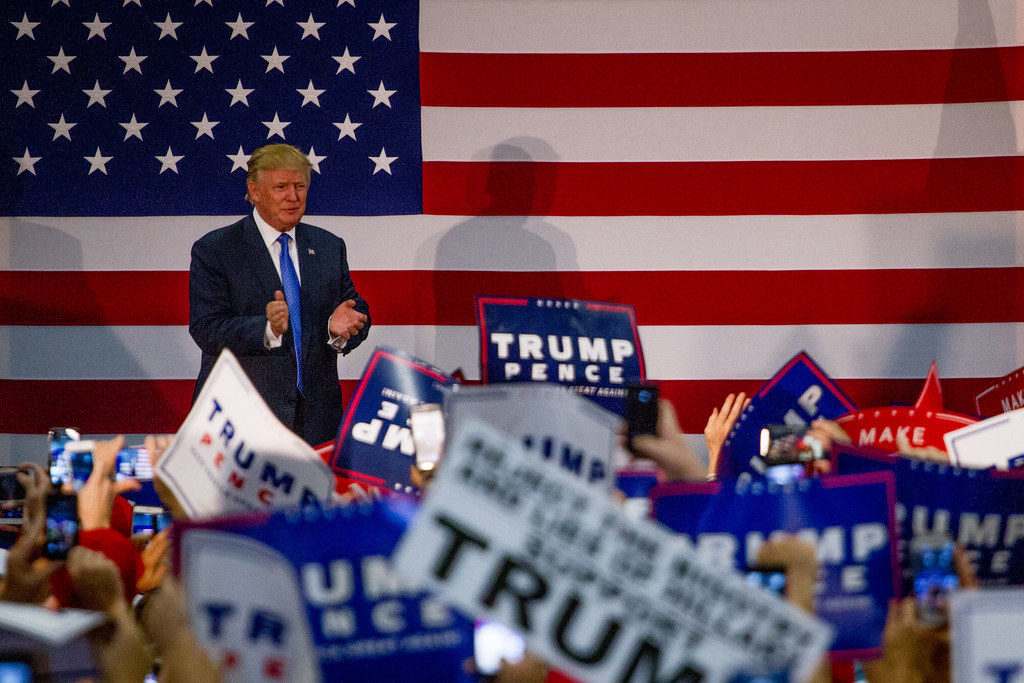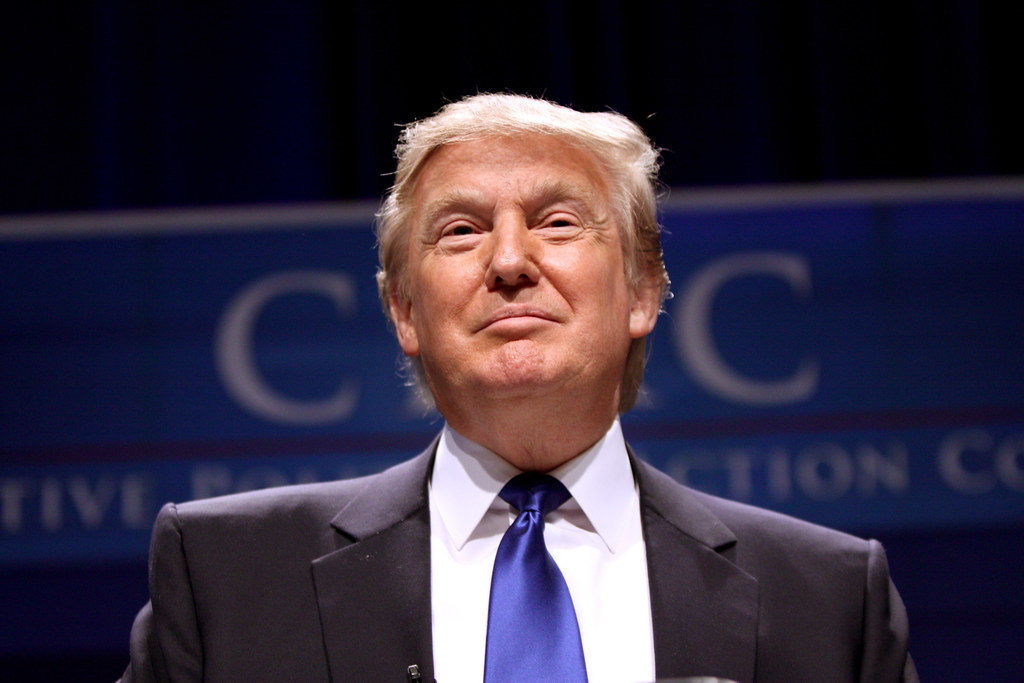In the months, weeks, and days leading up to the impeachment of President Donald Trump, he and his supporters have claimed for their defense a central pillar of American government: democracy. Impeaching Trump is wrong, they argue, because it is anti-democratic.
Take, for instance, the impassioned letter Trump sent to Speaker of the House Nancy Pelosi on Tuesday. In the six-page note, Trump called his impeachment an “illegal, partisan attempted coup” designed to “overturn the will of the American people.” By impeaching him, Democrats were “declaring open war on American Democracy.”
As others have written, Trump’s letter was exaggerated and misleading. FactCheck.org found it to be riddled with inaccuracies. According to constitutional law professor Noah Feldman, many of its constitutional claims were unfounded — for example, that impeachment is “unconstitutional,” even though it is expressly provided for in the Constitution.
Trump’s assertion that impeachment is anti-democratic, however, has received less scrutiny. Others have made this argument as well. In October, Tucker Carlson and Neil Patel, the cofounders of the conservative Daily Caller, called impeachment “the most extreme and anti-democratic remedy we have in our system of government.” The conservative lawyer John Yoo has also suggested, in a kind of impeachment corollary to the Garland rule, that such an anti-democratic instrument should not be used close to a presidential election. The framers, Yoo claimed on Fox News, “would have never wanted an impeachment within a year of an election.”
The claim that impeachment is anti-democratic is nearly as wrong as the claim that it is unconstitutional. Impeachment is necessarily democratic at every step of the process. In fact, the framers originally provided for impeachment to protect American democracy from the attempt by a president to use his power to influence an election — exactly the kind of anti-democratic conduct that led to Trump’s impeachment.
Impeachment Is a Democratic Process
The impeachment process begins in the House of Representatives, a group of 435 representatives from across the nation. Impeachment is a necessarily democratic enterprise, since it requires a simple majority of these democratically elected representatives. (This majority requirement was cleared on Thursday, when 229 representatives voted to impeach Trump.) Arguably, the act of impeachment is even more democratic than any act of the president, since representatives are elected more often — every two years, as opposed to the president’s four — and by individual congressional districts, instead of by states allocated votes in the Electoral College.

Donald Trump at a campaign rally in 2016
Furthermore, impeachment is democratic because it reflects the will of the electorate: in 2018, Democrats flipped the House by promising to hold the president accountable for misconduct. This House majority was elected directly in 2018; Trump, on the other hand, was elected via the Electoral College in 2016 (and lost the popular vote by 3 million). Arguably, the House has a greater claim to the will of the people than Trump has.
After the House impeaches a president, the ball rolls onto the Senate’s court. Whereas it takes only a majority in the House to impeach, it takes a supermajority — 67 votes — in the democratically elected Senate to convict, making removal difficult (as it should be). This supermajority requirement compensates for the fact that the Senate, which gives smaller states disproportionately more power than larger ones, is less democratic than the House. Senate conviction, too, is an exercise in democracy.
The result of a successful impeachment — presidential removal — is also democratic. As legal scholar Stephen Vladeck has pointed out, removal results in the elevation not of a political rival, but of the president’s own hand-picked, duly elected vice president. Trump’s replacement by Mike Pence would be far from the “coup” that Trump decried in his letter to Pelosi.
Impeachment: Guardian of Democracy
Even if impeachment is democratic, there is no doubt that it overturns the result of a democratic presidential election. This tension concerned the framers, but in the end they concluded that impeachment was necessary as a last resort, in case a president ever tried to interfere with the democratic process itself.
As Feldman, a Harvard Law professor, explained in testimony before the House Judiciary Committee, as well as in a longer essay in the New York Review of Books, the framers explicitly considered whether elections made impeachment unnecessary. During the Constitutional Convention in the summer of 1787, two of the framers — Pennsylvanian Gouverneur Morris and South Carolinian Charles Pinckney — made the exact argument that Carlson, Patel, and Yoo are making today: if a president really is corrupt, he’ll be voted out of office.
After some debate, the framers decided that impeachment was necessary as a backup to elections, if and when a president ever tried to subvert the electoral process. The president would have the power to “commit the most extensive injustice,” Virginian George Mason warned. Without the possibility of impeachment, North Carolinian William Davie argued, the president would “spare no efforts or means whatever to get himself re-elected.” Virginian James Madison added that impeachment would also rein in a president who “betray[ed] his trust to foreign powers.”
Far from thinking of impeachment as anti-democratic, the framers understood impeachment as a tool to save democracy from a presidential attack. Elections were for removing ordinarily bad presidents, but the republic needed a backup for extraordinarily bad presidents who excluded the possibility of fair and free elections.
In this way, impeachment is about not just rectifying a past wrong, but also preventing future harm and preserving the constitutional order. As constitutional scholars Laurence Tribe and Joshua Matz explain in To End A Presidency: The Power of Impeachment, “the orientation of an impeachment is primarily prospective and probabilistic,” making it especially important for Congress to remove a president “when the impeachable offenses at issue undermine democracy.” “In such cases,” Tribe and Matz write, “only by removing the president from office can Congress undo the immediate damage and prevent continuing constitutional harm.”
The Anti-Democratic Offense
Ultimately, an argument that appeals to democracy in order to defend Trump breaks down not just because impeachment is itself democratic, but because Trump’s alleged conduct is exactly the kind of anti-democratic behavior that convinced the framers that impeachment was a necessary congressional power. According to a memorandum transcribing parts of a call between Trump and Ukrainian President Volodymyr Zelensky, Trump asked Zelensky to work with Attorney General William Barr to investigate the son of his political rival, Joe Biden. According to several witnesses who testified before the House Judiciary Committee, the Trump administration made $391 million in aid and a White House meeting with Trump conditional upon the investigation into Biden’s son. Trump also blocked other key witnesses from testifying in the hearings.

In a letter to Democratic House Speaker Nancy Pelosi, Donald Trump called the impeachment proceedings a “coup”
As Neal Katyal, a leading Supreme Court advocate, argues in his recent book Impeach, Trump’s conduct was doubly anti-democratic. In the first place, by attempting to instigate an investigation into his political rival’s son, Trump sought to advance his own personal interest — his re-election — rather than the interests of the American people. On top of this, Trump attempted to influence a national election in collaboration with a foreign power, Ukraine. In other words, Trump used the power of his office, including his control of American foreign policy, to gain an electoral advantage over all other presidential contenders. This is the very definition of subverting democracy and the very conduct the framers designed impeachment to address.
There is little doubt that this conduct is impeachable. Out of the four legal scholars who testified before the House Judiciary Committee about impeachment, three said Trump’s conduct met the “high crimes and misdemeanors” standard for an impeachable offense. The fourth said “the Ukrainian controversy could still establish impeachable conduct” but wanted to see more evidence first.
The charge that Donald Trump solicited foreign aid in a political campaign implies a serious threat to American democracy. For this reason, if the charge were proven in a Senate trial, Trump’s conduct would merit removal. Plus, the result of impeachment — the elevation of a duly elected Vice President — would be far from an anti-democratic coup. Instead, it would be a necessary exercise in preserving American democracy, enacted by a majority of U.S. Representatives and a supermajority of U.S. Senators, all of whom are themselves duly elected by citizens across the country.
Image 1 Source: flickr/Gage Skidmore
Image 2 Source: flickr/Michael Candelori Photography
Image 3 Source: flickr/Gage Skidmore
